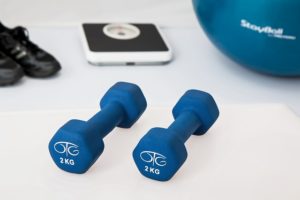Pamber Physio would like to take this opportunity to thank Louise of NHM for giving me the chance to promote my Private Physio clinic based in Pamber Heath.
Louise is one of my good NCT friends :-D.
About me
My name is Laura Chaffé and I run Pamber Physio throughout the week in the evenings and at weekends. I am a registered member of the Chartered Society of Physiotherapy and the Health and Care Profession Council.
I graduated with a BSc Hons in Physiotherapy at Southampton University in 2005. The last 10 years have been spent treating patients in the NHS; I have a great passion to helping patients to improve/cure their symptoms.
Pamber Physio specialises in musculoskeletal physiotherapy treating patients who have problems with muscles, joints, tendons, ligaments, discs, nerves and bones.
My aim is to provide a thorough assessment and management programme tailored to each individuals needs.
Pamber Physio can help patients understand their condition, prevent re-occurrences and learn how to manage it.
The purpose of physiotherapy is to help people who are affected by injury, illness or disability through education and advice, movement and exercise, and manual therapy.
Physiotherapists maintain health for people of all ages, helping patients to manage pain, improve range of movement, increase strength and decrease swelling.
The profession aims to facilitate recovery and helping people to stay in work or recreational hobbies.
For NHM readers
Some of you may be suffering with SPD (symphysis pubis dysfunction), low back pain, weak pelvic floor or weak core stability pre or post natal.
At Pamber Physio I can certainly help you to relieve your symptoms, provide good advice and to strengthen weak muscles.
Conditions treated
- Lower back pain
- Neck pain
- Whiplash injury
- Sciatica
- Sports injuries
- Chronic pain
- Muscle, ligaments and tendon sprains and strains
- Rheumatoid and osteoarthritic conditions
- Joint problems which may include stiffness, swelling and pain affecting – shoulder, elbow, wrist and hand, hip, knee, foot and ankle
- Frozen shoulder
- Tennis/golfers elbow
- Achilles tendonitis
- Post fractures
- Rehabilitation pre and post orthopaedic surgery
- Ante and post natal care
- Repetitive strain injuries (RSI)
- Bursitis
Please note this list is not exhaustive and many other aches and pains can be treated with Physiotherapy.
Treatment
Pamber Physio will provide a range of treatments, specific to your needs. Using both traditional and modern techniques with a suitable mix of technology, your condition will receive the specialist physiotherapy care.
- Joint mobilisation
- Soft tissue/scar tissue massage
- Electrotherapy e.g. ultrasound
- Exercise prescription for increasing range of movement, stretching and strengthening, proprioception and balance exercises
- Trigger point release
- Muscle energy techniques
- Gait re-education
- Core exercises
- Gym ball exercises
- Postural education
- Taping
- Theraband exercises
- Hot and cold therapy
Based in Pamber Heath, Tadley, Pamber Physio is ideally located to treat patients in many surrounding areas within the Basingstoke, Newbury and Reading triangle.
Offering a private appointment at your home or preferred location provides flexibility when you need it most. I work out of my treatment room in Pamber Heath evenings and weekends.
To book an appointment or discuss any aspect of physiotherapy please do not hesitate to get in touch.
Email: laura@pamberphysio.co.uk
Telephone: 07909994433
Website: www.pamberphysio.co.uk this has an enquiry form if you wish to complete and I will get back to you within 24 hours.
FAQ’s
How long should I expect the treatment to last?
Initial consultation is 45 minutes to 1 hour and a follow up session is 30 minutes.
What should I wear?
Comfortable clothing – be aware you may be asked to undress. Women may feel more comfortable to wear a vest top for shoulder and neck assessments. Shorts can be worn for assessment and treatment for knee and ankle joints.
How much will it cost?
Initial assessment is £45 and follow up sessions are £30. Home visits for immobile patients incur an additional charge, please enquire for further information.
How would I get referred to Pamber Physio?
Patients may self-refer to Pamber Physio. GP and consultant referrals are also welcome.
Don’t miss out on future posts like this – you can receive updates directly to your inbox by email by adding your email address to the box on the top right of this page and hitting subscribe. You can also follow NorthHantsMum onTwitter, Facebook Profile, LinkedIn and Feedly. I hope to see you there!

